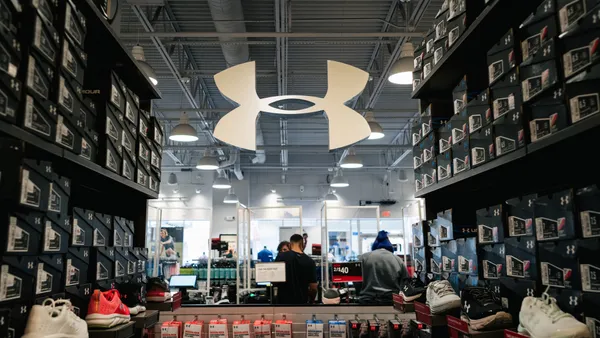Dive Brief:
- Walmart is testing dark stores, or brick-and-mortar locations that fulfill online orders but are not open to the public, the company confirmed Wednesday.
- The retailer is currently piloting the concept in Dallas.
- The dark stores will carry some of the retailer’s most popular products, as was first reported by Bloomberg. Another location is planned for Bentonville, Arkansas, the retailer’s hometown, per the publication.
Dive Insight:
A dark store may look like a regular shopping location, but there’s a catch: the public isn’t allowed inside.
“We regularly test new tools, features, and capabilities to better connect with and serve our customers — wherever and however they choose to shop,” a Walmart spokesperson said in an email to Retail Dive. “Regardless of the channel, our goal remains the same: to deliver a fast, seamless, and engaging customer experience.”
Dark stores are used to speed up and streamline online fulfillment, which is important for a retailer that is accelerating its operations. The company has been using its store footprint and technology, including drones, to advance delivery in recent years.
Walmart U.S. achieved e-commerce profitability in Q1 for the first time, with sales up 21%, a metric CFO John David Rainey said is “an important milestone for our company.”
E-commerce net delivery costs have declined as the retailer densifies last-mile deliveries and as Walmart shoppers pay fees for faster delivery services, per Rainey. The company anticipates soon reaching 95% of the U.S. population with delivery options of three hours or less. The number of deliveries in under three hours grew by 91% in Q1 compared to the year-ago quarter.
Walmart reported that revenue in Q1 grew by 2.5% year over year to $165.6 billion, while operating income increased 4.3% to $7.1 billion. The company at the time warned of price increases due to fluctuations in tariff policies.
“We’re positioned to manage the cost pressure from tariffs as well or better than anyone. But, even at the reduced levels, the higher tariffs will result in higher prices,” CEO Doug McMillon said at the time.
Walmart recently cut 1,500 jobs on its U.S. retail and global tech teams as a way to streamline operations.
Correction: This article has been updated to reflect Walmart's CEO is Doug McMillon.















